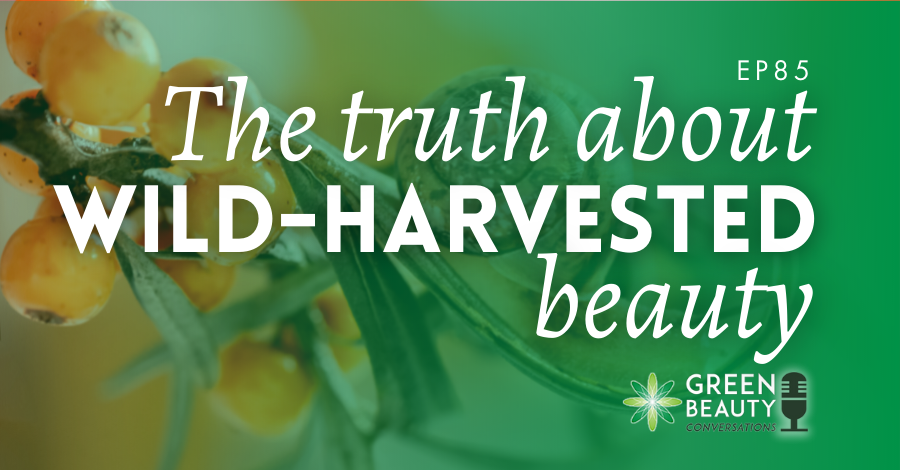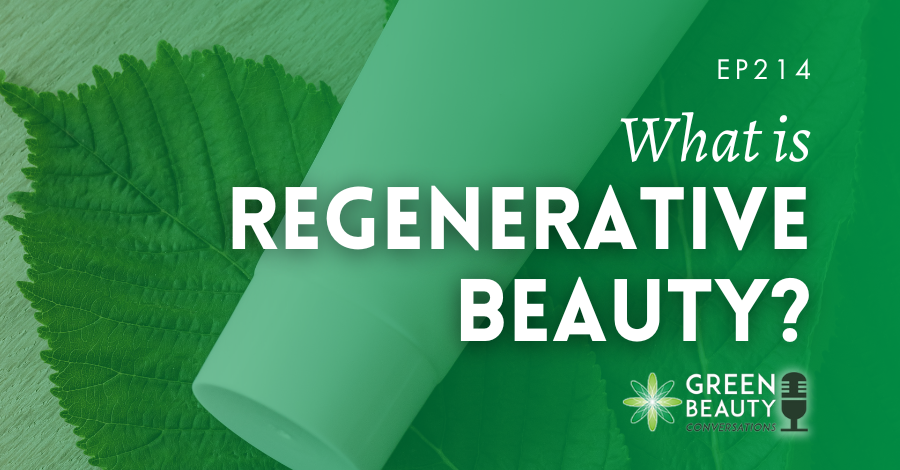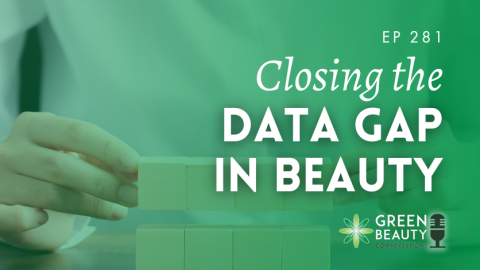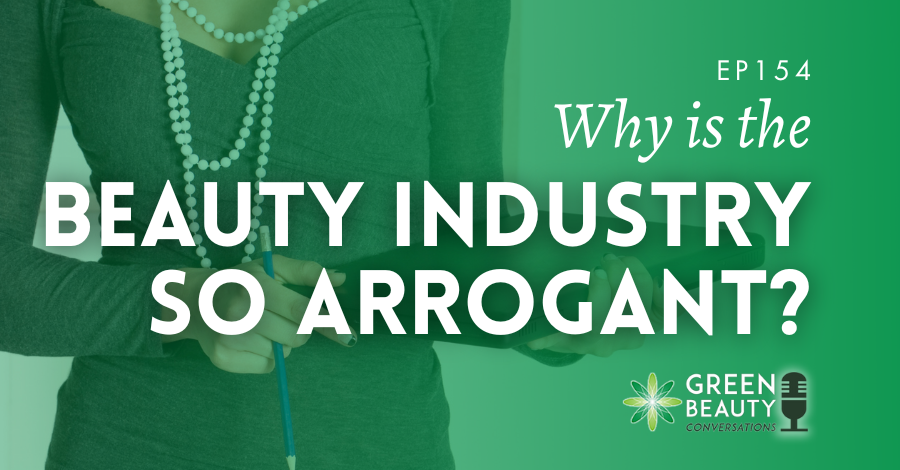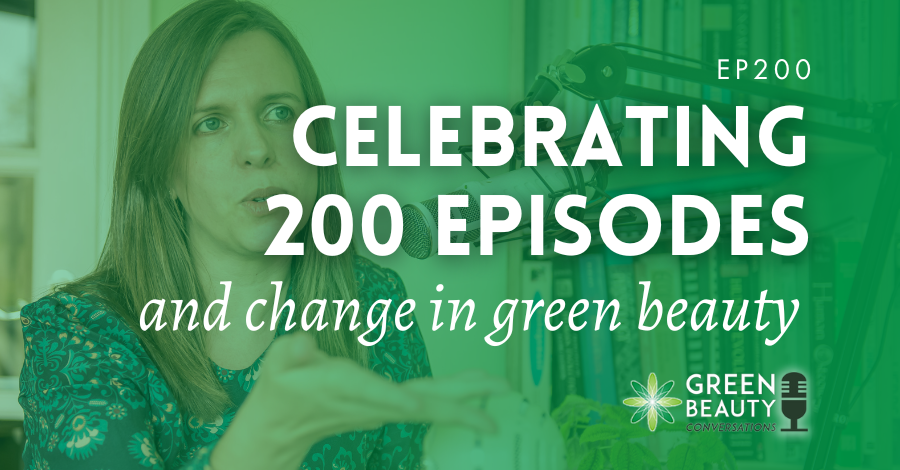Wild harvesting plants as cosmetic ingredients sounds idyllic. It conjures up visions of nature’s botanical bounty going straight into beauty product formulations, barely processed or adulterated by human hand, and carefully selected from woodlands, hedgerows, forests, rain forests, mountains, moors and more.
Wild harvesting is certainly a marketer’s dream. You will no doubt have seen beauty products sporting ‘wild harvested’ labels and brands mentioning on their packaging and websites that their products include wild-harvested botanicals.
But harvesting any plant, whether a commercial crop or a wild plant, has an environmental impact. We talked about these issues in our podcast on the sustainability of essential oils. Wild harvesting may sound the ultimate way to source natural beauty ingredients, but how do we as consumers know if the wild harvesting of precious botanicals isn’t leaving its own damaging footprint on the planet? Wild harvesting could turn out to be a far cry from the sustainable image it portrays.
To help unpack the truth about wild harvesting, Formula Botanica CEO and podcast host Lorraine Dallmeier invited Emily King, business engagement officer in the secretariat of the FairWild Foundation, on the show. FairWild is a non-profit initiative with the mission to secure a fair and sustainable future for wild plant resources and people. Listen in to hear just how wild harvesting can be a real force for sustainable good – for planet, plants and people – if managed the right way.
In this podcast on wild harvesting, you will:
- learn about FairWild’s mission and how it defines wild harvesting in order to set its rigorous standard and audit guidelines for ingredient gatherers, suppliers and producers and brands;
- discover how FairWild’s wild-harvesting certification differs in scope from others operating in the organic, fair trade and ethical business spheres;
- find out how FairWild works not only to ensure the sustainability of wild-harvested botanicals and their wider habitats, but also addresses the socio-economic impact of wild harvesting on local communities. FairWild seeks to protect and promote the sustainability of ethical livelihoods – even the oral knowledge passed down through generations – of communities that gather and trade in certain plants; and
- hear about the complex work of the Foundation in researching the impact the wild harvesting of individual parts of plants – flowers, berries, seeds, stems, roots, leaves, bark and more – has on local and global ecology.
Key take-outs include:
- It can be difficult for small beauty brands to know the source of their ingredients. But, by working with FairWild-certified participants, a small brand can find a USP (unique selling proposition) in its ingredients and has something to shout about in its marketing – that isn’t greenwashing and is about sustainable practices in action.
- FairWild certification of ingredients, based on some 12 years’ experience in the field and on rigorous research and standards, constitutes a trusted scheme that beauty consumers can understand and brands adopt.
- Beauty has been slower on the uptake of wild harvesting certification, in comparison to the food and drink industries, but now, given consumer demands for greater transparency, more beauty brands are determined to police their sourcing and work with or become FairWild certified.
- Indie beauty can be part of the FairWild movement; the Foundation has made it easier for start-ups and fledgling beauty brands to work with FairWild and there are various routes to investigate to participate in and be eligible to use FairWild licensing.
Meet our guest: Emily King
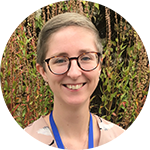
More information:
FairWild Foundation
The FairWild Standard
FairWild on Linkedin.
[email protected]
If you enjoyed this interview with Emily King of FairWild, you might also like these episodes on sustainability in the beauty industry.
Podcast 75: How sustainable are essential oils?
Podcast 73: Should beauty retailers boycott unsustainable brands?
Podcast 14: Sustainable beauty – discussing the top issues and concerns
Podcast 69: Biodegradable beauty – license to greenwash the beauty industry?
Podcast 66: What is circular beauty?
Green Beauty Opinion – Podcast 86: Are we dumbing down sustainable beauty?
Lorraine’s interview in the last episode with Emily King of FairWild raised nuanced questions about not just the sustainability of wild-harvested cosmetic ingredients, but also that of natural botanicals and synthetics in general. In this opinion, Lorraine shares her opinions on the ongoing polarised debate about the sustainability of beauty ingredients that pits naturals vs synthetics. To argue that synthetics are the more sustainable route now is a simplistic view ignoring the complex research needed to determine an ingredient’s sustainability. Lorraine challenges us to think carefully about sustainability claims and to keep an open mind. Listen in for another thought-provoking green beauty opinion
Listen to Lorraine’s Green Beauty Opinion:
Thank you for joining us for this episode of the Formula Botanica Green Beauty Conversations podcast. If you enjoyed listening, please share, subscribe and review this episode on Apple Podcasts, Spotify or Youtube so that more people can enjoy the show. Don’t forget to follow and connect with us on Facebook and Instagram.
FREE TRAINING
Learn how to become an
Organic Skincare Formulator
FREE TRAINING
How to become an
Organic Skincare Entrepreneur
FREE TRAINING
How to become an
Organic Skincare Entrepreneur
Leave us a comment
Lorraine Dallmeier is a Biologist, Chartered Environmentalist and the CEO of Formula Botanica, the award-winning online organic cosmetic science school. Read more about Lorraine and the Formula Botanica Team.

